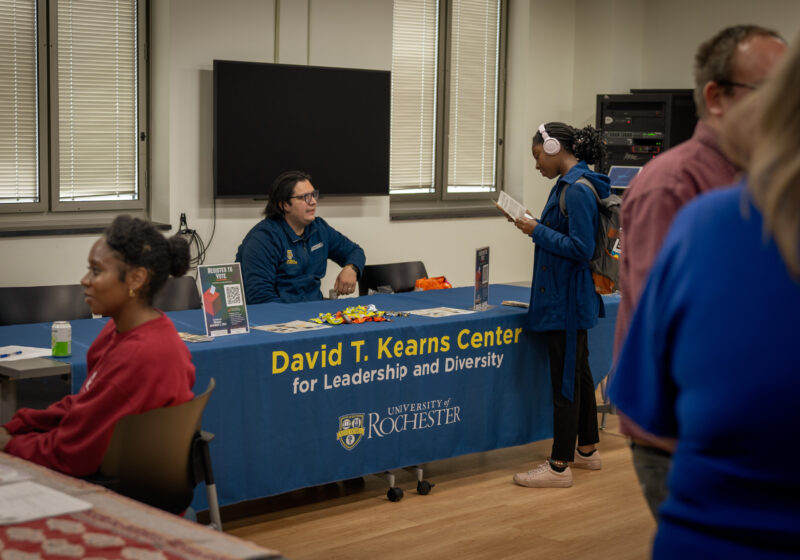Despite the seemingly predominate liberal political climate at UR, the College Republicans continue to be politically active on the River Campus and in the Rochester community. President and senior Jacquelyn Monaghan leads the efforts.
What are the dynamics of a typical group meeting?
In our discussion session, different members or committees put in their various inputs. Also, usually once a week we have a topic of discussion, where I have e-mailed out an article from different newspapers regarding various political and social issues.
We do discuss politics and we do discuss social issues about what’s going on in the world, but we’re also friends. It’s not just you talking about what you think and your political views, but it’s also you talking about your classes and your friends.
How do you think your group reflects the political makeup of undergraduates?
I definitely feel like the College Republicans are a minority on campus. Not only within the student body, but also within the faculty … we have conservatives, libertarians, individuals with classic liberal philosophy. It’s not just strictly members of the Republican Party that make up our group
What is it like to be a member of a conservative political organization in a liberal, college setting?
One struggle that the College Republicans and College Democrats face is that we are not SA funded. So the amount of programs that both clubs are allowed to bring forth is severely limited at times. We provide a different viewpoint in an area where ideological diversity is often lacking. I feel that we, as a group, help to promote the free exchange of ideas in a collegiate setting. By being involved in different activities on campus, whether they’re political or non-political, we help to promote that [exchange].
What kind of activities do you guys do in the city of Rochester?
We’re pretty involved in local politics. This past fall we volunteered in local elections for several candidates for the Brighton Town Board and the Monroe County Legislature. In 2008 we had a lot of fun helping out fellow yellow-jacket and UR alumni Chris Lee in his campaign for the U.S. Congress. We usually go door-to-door canvassing neighborhoods and handing out campaign literature or we make ‘get out the vote” calls on Election Day.
Do you collaborate with the College Democrats or any other organizations?
Yes we do. We’ve collaborated most recently with the College Democrats in our professor panel last week to evaluate and discuss President Obama’s first year in office. We’ve collaborated with the Women’s Caucus in Pennies for Peace. The past two years we’ve done events to support the troops with Sigma Alpha Mu, Sigma Nu and Kappa Delta. We’ve collaborated with a lot of clubs and we like to collaborate with different ones to get our name out there.
What event are you guys looking forward to most this semester?
Currently, we are working to bring Congressman Chris Lee to campus sometime in April to speak about what it’s like to be a first time senator in Congress and have him discuss his experiences. We are also working to bring [Monroe] County Executive Maggie Brooks.
Radovani is a member of the class of 2012.



